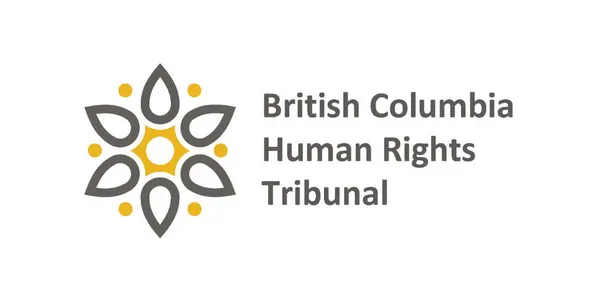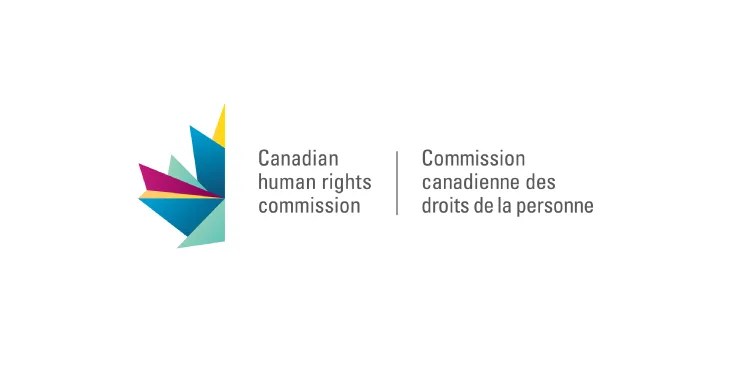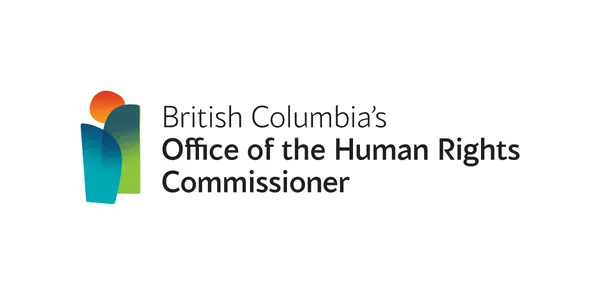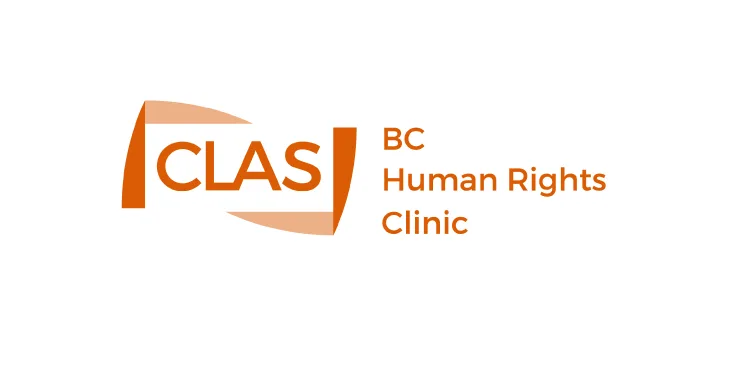
If someone didn’t intend to discriminate, there can be no discrimination.
Everyone is protected from discrimination. Discrimination is when you’re treated badly or unfairly because of certain parts of your identity. Examples include your race, sex, age, and any disability. Learn to identify discrimination, and steps to take if you’re discriminated against.
Content warning
This page describes experiences of discrimination, including racism and homophobia. It may bring up difficult or traumatic memories or emotions.
What you should know
There are several ways someone can experience discrimination. Some examples are:
A Black man applies for a job. The manager doesn’t hire him, saying “I just don’t think our customers would trust you.” This may be discrimination based on race or colour.
A gay couple is turned away when ordering a wedding cake at a bakery. This may be discrimination based on sexual orientation.
A woman who wears a religious head scarf is warned by her employer for not following the workplace dress code. This may be discrimination based on religion.
A property manager refuses to rent an apartment to a single mother with two kids, saying “This suite isn’t appropriate for children.” This may be discrimination based on family status.
An employer hires a 30-year-old with no relevant work history instead of a 60-year-old who is more qualified. This may be discrimination based on age.
Human rights law helps protect everyone from discrimination. It says no one can be treated badly or unfairly because of certain parts of their identity, such as race or sex. The law calls these protected characteristics.
Under BC’s Human Rights Code, the protected characteristics include:
your race, colour, ancestry, or where you’re from
your Indigenous identity
your sex, sexual orientation, or gender identity or expression
your age
any physical or mental disability
your marital status
your family status, such as if you have kids
your religion
Discrimination can take many forms
Discrimination can occur when someone is treated badly because of a protected characteristic. For example, if an employer fires you after learning you’re pregnant. Or if a landlord refuses to rent to you because you’re Indigenous.
Discrimination can also be less direct. Sometimes a policy or practice that applies to everyone can have a discriminatory effect on some people. For example, say your employer has a rule that all workers must be available to work on the weekend. But your religion requires you not to work on Sunday. The rule applies to everyone at work, so it seems fair. But it has a negative impact on you in relation to a protected characteristic — your religion. Therefore the rule discriminates against you.
Sometimes the systems you interact with can work to discriminate against you. This is called systemic discrimination. It includes rules, policies, attitudes and structures that privilege some groups and disadvantage others. Here, we explain systemic discrimination.
Intention doesn’t matter
Discrimination doesn’t need to be intentional. It’s the impact the treatment has on someone that’s important.
Context matters
BC law protects people from discrimination in four main areas of everyday life: work, housing, accessing a service (like restaurants, gyms, hospitals, and schools), and publications (like an article or flyer). We look at each of these areas below.
What human rights law applies
BC human rights law applies to housing in BC and most workplaces and services in the province. But there are some settings where the Canadian Human Rights Act applies. For example, it applies if you’re dealing with a company regulated by the federal government, such as an airline or a cellphone provider. Here is guidance on which human rights law applies, depending on the situation.
“I recently came out as queer at work. I asked my co-workers to start calling me by my chosen name. I told them it helps me to affirm my identity. Some co-workers resisted. One refused to use my new name, another told me 'you’ll pay a price for your ways.' I raised concerns with our manager that my choices weren’t being respected. They made it clear discrimination isn’t tolerated in our workplace. They also organized some workplace training on gender identity. It’s helping create a better working environment.”
– R.L., Victoria, BC

Everyone has the right to be free from discrimination in their work. This protection applies in all aspects of employment. It covers hiring, firing, wages, benefits, hours, and other terms and conditions of work. It also applies to the work environment, meaning your employer must provide a discrimination-free workplace.
“Last month, my partner and I met with the landlord of an apartment we were interested in. The space was perfect, and the location was ideal for us. We told the landlord we’d take it. They seemed hesitant, and said they thought the unit was ‘more suitable for a traditional family.’ It felt like we were turned down because we’re a gay couple. We’re considering starting a human rights complaint for discrimination.”
– K.B., Vancouver, BC

The right to be free from discrimination applies in three housing-related areas:
tenancy
living in a strata
buying a home
Tenancy
Under BC’s Human Rights Code, everyone is protected from discrimination when renting a place to live. This applies to all stages of a tenancy, including entering a tenancy agreement, the terms and conditions of the agreement, and being evicted.
Living in a strata
Also under BC’s Human Rights Code, stratas must not discriminate in their delivery of services, like providing access to common areas or enforcing their bylaws.
Buying a home
Under another section of the Human Rights Code, everyone has the right to be free from discrimination when buying land or a place to live. This covers the transaction itself as well as the terms and conditions of the contract.
For a closer look, see our coverage of discrimination in housing.
“My friend and I were shopping at our favourite clothing store. While I was browsing, I noticed the security guard was following me around. It made me really uncomfortable, so I asked my friend if we could leave. As we were exiting, the guard stopped me and accused me of shoplifting. I was mortified. I can’t help but suspect it’s because I’m a member of the Musqueam Indian Band.”
– S.N., Richmond, BC

BC’s Human Rights Code protects everyone from discrimination when accessing a service, facility, or accommodation customarily available to the public. This is a broad category. It includes businesses, stores, hotels, restaurants, schools, community centres, police services, and more.
Discrimination by a service provider can play out in many ways. An example is if you’re refused service by a health care provider because of stereotypes based on your race. (We have guidance on discrimination in health care.) Another is if you’re prevented from joining a community sports league because of your gender identity.
We look at more examples in our coverage of discrimination when accessing a service.
“Last month, my neighbour and I had a dispute about a shared fence and we haven’t been on good terms since. They started spreading rumours about my family. The other day, I noticed they’d put up posters in our neighbourhood that accuse me of extremism because of my religious beliefs. I feel they’ve crossed a line, and I’m looking into making a human rights complaint.”
– N.T., Surrey, BC

The BC Human Rights Code prohibits publications that expose a person or group to hatred or contempt, or that indicate discrimination or an intention to discriminate. This includes a published statement, sign, notice, article, or other representation that isn’t private.
A publication discriminates when it has a very harmful effect on a person or group in relation to a protected characteristic. Examples include race, sex, or religion. Publications that express offensive or hurtful ideas, but fall short of discrimination, aren’t covered by this law.
See the BC Human Rights Tribunal website for more.
“It was a really difficult time in my life. I was anxious and depressed, and I started missing some days of work. I was afraid of what my employer would think if I told them the reason I was missing work. They called me into their office and told me I was being fired for absenteeism. I told them about my condition, which the law considers to be a mental disability. But they said there was nothing they could do. Only later (when it was too late) did I learn the employer had a duty to accommodate me.”
– J.T., Abbotsford, BC

Human rights law prohibits behaviour that discriminates. It also places a duty on employers, landlords, service providers, and others to take steps to counter the discriminatory effect of their policies and practices. This is called the duty to accommodate. Where a protected characteristic is involved, those who owe this duty must do what they can to make adjustments to accommodate your needs.
What the duty to accommodate requires depends on the context. In a work scenario, it may mean an employer has to change a worker’s job duties or adjust their hours. In a tenancy situation, a landlord might need to install a wheelchair ramp to accommodate a tenant with a disability, or install safety latches on windows to make the building safer for families with young children.
The duty to accommodate isn’t limitless
You’re entitled to reasonable — not perfect — accommodation. Sometimes accommodation isn’t possible because it would cost too much. Or there may be negative consequences for others. The law draws the line at the point where the accommodation causes undue hardship. Some factors that go into deciding this are:
the financial cost
any health or safety issues
the impact of the accommodation on others
The bar is a high one. Mere inconvenience or disruption isn’t a good enough reason to avoid accommodating. The duty bearer needs to show they would suffer serious consequences if they took further steps to accommodate you.
Your role in finding a reasonable accommodation
You have to participate in the search for a suitable solution. If you don’t, it’s less likely you’ll receive the accommodation you wanted. In the end, both sides may need to compromise.
Options for free or low-cost legal help
Identifying a duty to accommodate and determining what amounts to undue hardship isn’t straightforward. If you think a duty to accommodate may apply in your situation, consider getting legal advice. Here are some options for free or low-cost legal help.
Work out the problem
If you feel you’ve experienced discrimination, the first step is to get a handle on the situation. A good way to do this is to write down your story. Just a few paragraphs or bullet points can relieve stress and clarify your thoughts.
Make sure you note:
What happened: describe the way you were treated unfairly.
Why you think this happened: the protected characteristic you think was a factor in the unfair treatment.
The impact: details of how this experience has had a negative effect on your life.
Who else is involved: as in, who can back up your story.
Also think about what you want to happen. Presumably you want the discrimination to stop. Is that enough on its own? Are you hoping for an apology? Or for the other party to commit to change their approach in situations like yours? Or something else to happen?
Sometimes it can be hard to figure out whether you were discriminated against. Your answers to these three questions can help you decide:
Is a protected characteristic in play? (See above, under what you should know, for the personal characteristics protected from discrimination.)
Was I treated in a way that had a negative impact on me?
Was the protected characteristic one of the factors in how I was treated?
You’ll need to show how the answer is ‘yes’ to all three of these questions in order to show you were discriminated against. (The protected characteristic doesn’t need to be the only or most important factor in how you were treated. It just needs to be a partial factor.)
Next, clarify your options. These will depend on your situation. Here are two examples:
If you’ve been discriminated against at work, your options could include talking to your manager or (if you’re in a union) your union representative, following a complaint process at your workplace, or making a human rights complaint.
If you’ve been discriminated against in accessing a service such as a restaurant, your options could include talking with the manager, writing a letter to the owner, or making a human rights complaint.
We dig into specifics in our in-depth coverage of discrimination in employment, housing, and accessing a service.
Consider getting legal advice
At this point, it can be very helpful to speak to a legal professional. They can help explain your rights and your options. The BC Human Rights Clinic offers a range of free legal services, including summary advice. (If you are Indigenous, you can ask to speak directly to an Indigenous legal advocate.) The Lawyer Referral Service can help connect you with a lawyer for a free 15-minute consult. For more options, see below under who can help.
If you’ve experienced discrimination, consider contacting the other party to raise your concerns. They may not be aware their words or actions negatively affected you. Talking things through might stop the problem from getting worse. Or resolve it entirely.
This can be delicate. In some situations it may not feel safe to contact the other party. And that’s fine; you can try another approach. But if you feel up to it, dealing with a difficult situation head on can resolve things more quickly. Especially if you raise your concerns calmly and thoughtfully.
If you’ve experienced discrimination, you can start a human rights complaint. A body called a tribunal will look at your complaint. It operates like a court but is less formal. If you prove you’ve been discriminated against, the tribunal can make an order to compensate you. They can also order other remedies. For example, they can order the person who discriminated to stop the discrimination and not do it again.
We walk you through what’s involved in making a human rights complaint.
Who can help
The BC Human Rights Tribunal lists organizations that can help if you feel you’ve been discriminated against. Below are some of the key ones.

BC Human Rights Tribunal
Receives and resolves discrimination complaints under BC law.

Canadian Human Rights Commission
Deals with discrimination complaints under federal human rights law.

BC’s Office of the Human Rights Commissioner
Works on systemic human rights issues and educates people about human rights in BC.

BC Human Rights Clinic
Provides free assistance and representation to those who qualify for help with a discrimination complaint under BC law.

Access Pro Bono's Free Legal Advice
Volunteer lawyers provide 30 minutes of free legal advice to people with low or modest income.

Access Pro Bono’s Everyone Legal Clinic
Clinicians provide affordable fixed-fee services on a range of everyday legal problems.

Lawyer Referral Service
Helps you connect with a lawyer for a complimentary 15-minute consult to see if you want to hire them.

BC Legal Directory
Search for a lawyer by community or legal issue. From the Canadian Bar Association, BC Branch.


